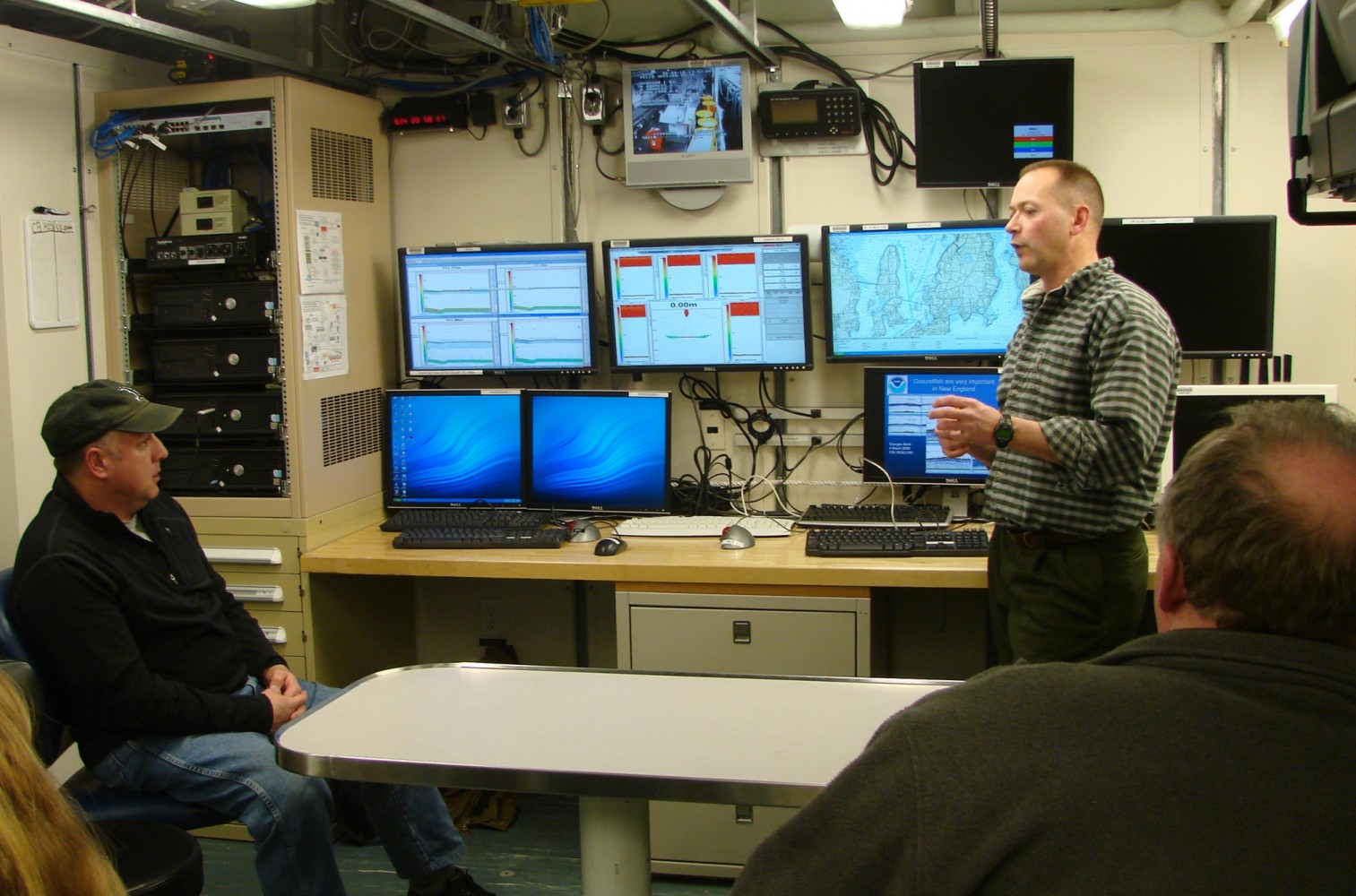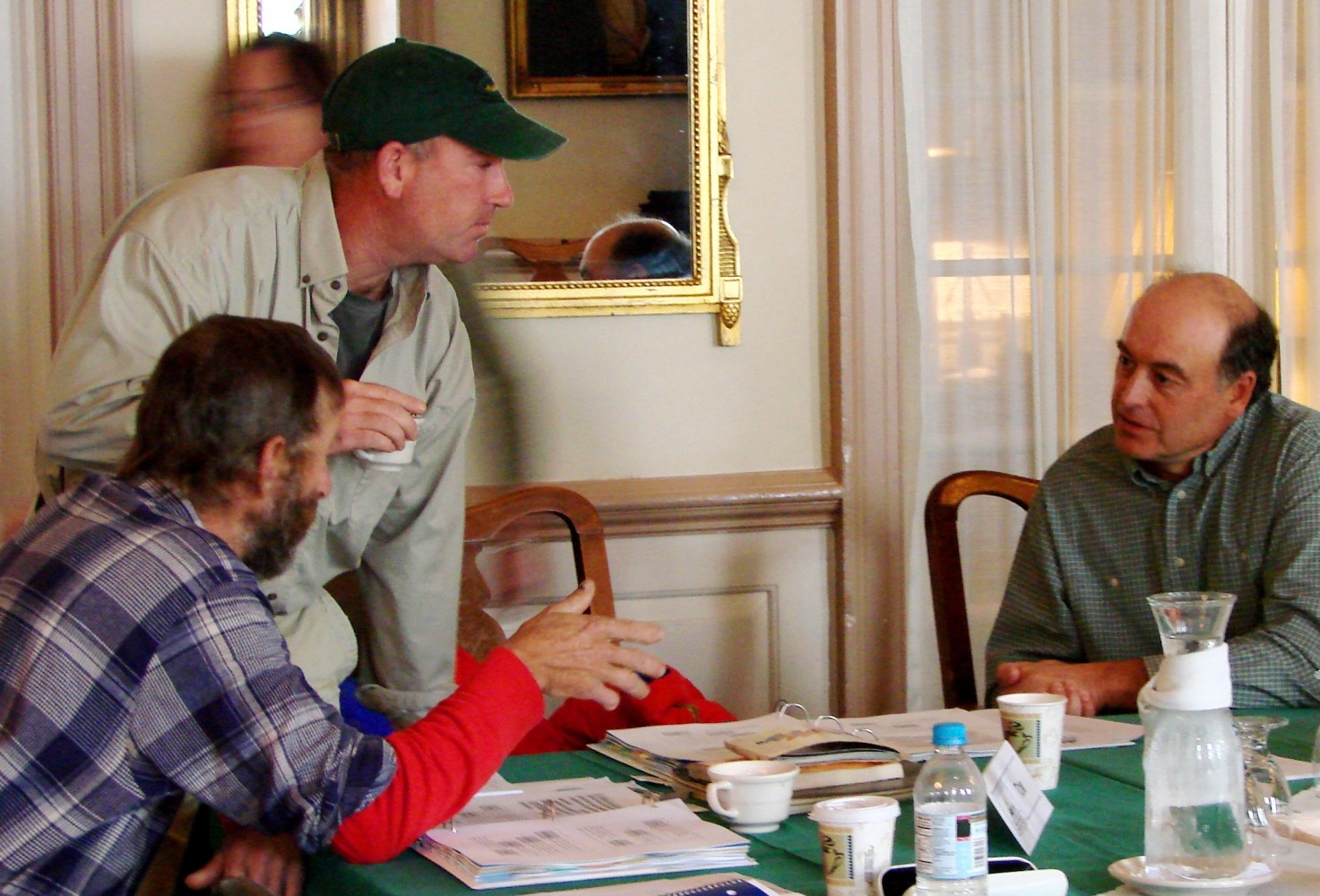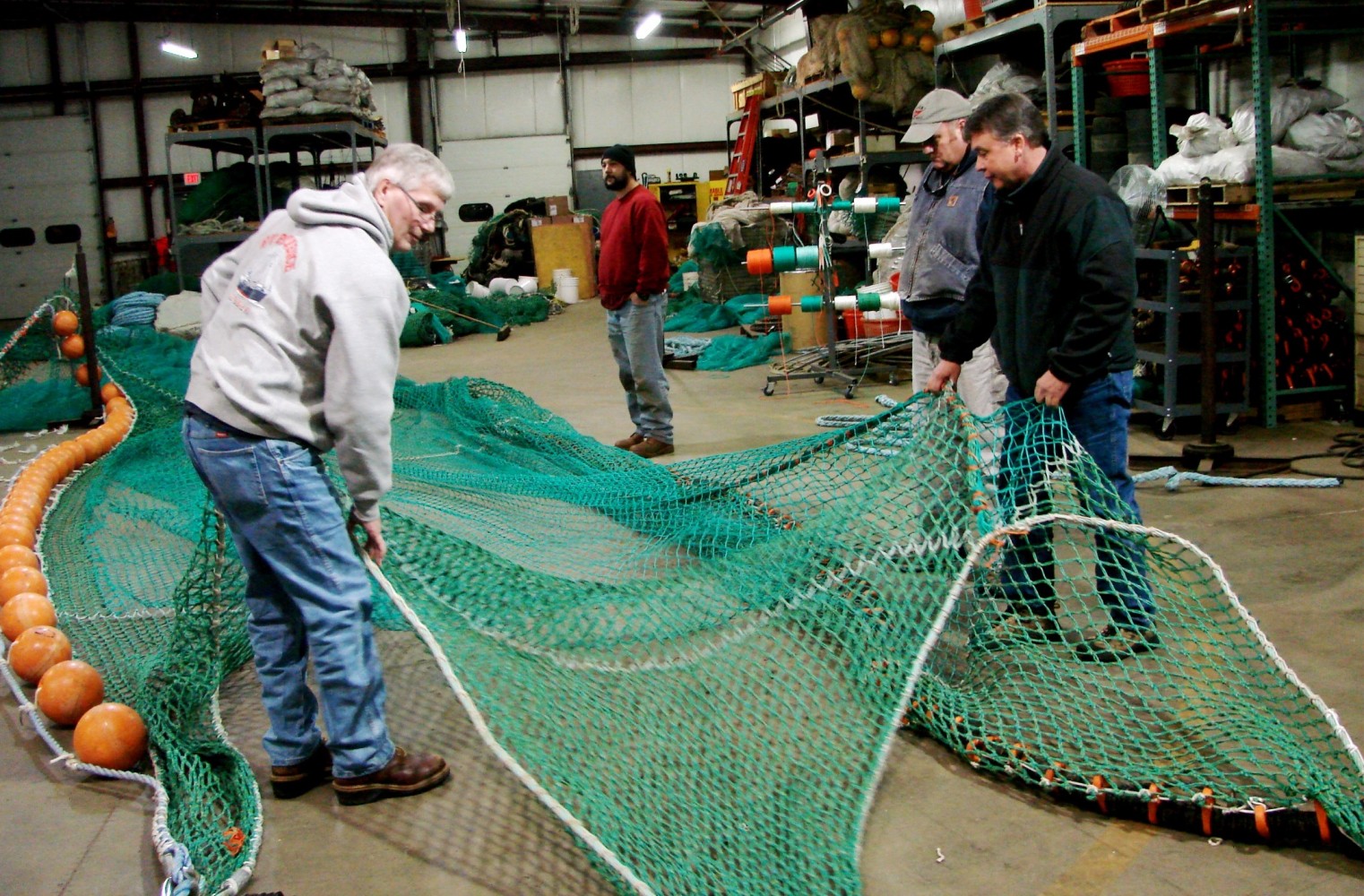Initiated in 2001 as a pilot based at the University of New Hampshire, a mix of commercial and recreational fishermen, managers and scientists came together to craft a curriculum and mode of delivery for six days of MREP classroom work. In 2005 the program was moved to the Gulf of Maine Research Institute as its administrative base.
Conceived, managed and presented by members of the fishing community, MREP is receiving growing recognition for raising the level of dialog within Northeast fisheries.
What makes MREP effective?
- “By fishermen for fishermen”. Fishing community leadership at all levels.
- The MREP Implementation Team partnership; a small group of principals from the fishing industry and the administrative institution organize and deliver all aspects of the program, including proposal writing and reporting.
- A board of advisors which includes representatives from diverse fishery sectors, the Northeast Regional Office, Northeast Fisheries Science Center, two Fishery Management Councils and academia.
- Evaluation and feedback; fishermen attendees evaluate curriculum presentations for clarity and content.
- Workshops moderated by fishermen trained in meeting management.
- Ample time for questions and two-way communication.
- “No jargon allowed.” Recognition that different professional disciplines use different vocabularies.
- Word of mouth marketing. MREP graduates are the best sources for engaging new participants.
Workshops Offered
Fishery Science 100 (three days) is designed to provide participants with grounding in the sciences fundamental to management. Participants are provided with basic working knowledge of population biology and the assessment process, including survey sampling techniques, statistical tools, models and data-sets used in the Northeast. The effect which climate, oceanographic and ecological drivers have on fish populations is examined. Information presented demonstrates how fishing effort relates to stock assessments and how fishermen’s knowledge can be incorporated.
Fishery Management 100 (three days) provides an overview of entities which manage commercial fisheries with an emphasis placed on the structure of the Fishery Management Councils and the requirements under the Magnuson-Stevens Act. The curriculum covers the components of a management plan, describing the progression of plan development and identifying critical opportunities for participation and input. A role-play exercise simulates a specification-setting negotiation.
Introduction to Stock Assessments, Science 200 (two days) is an exploration of the data-labs and the research vessel at the Northeast Fishery Science Center in Woods Hole, MA, featuring hands-on presentations by key NMFS scientists. The workshop culminates in review of stock assessment models, relating the component parts to the actual data collection locations visited.

On the R/V Henry Bigelow, fishermen and scientist discuss acoustic data collection
John Williamson photo

